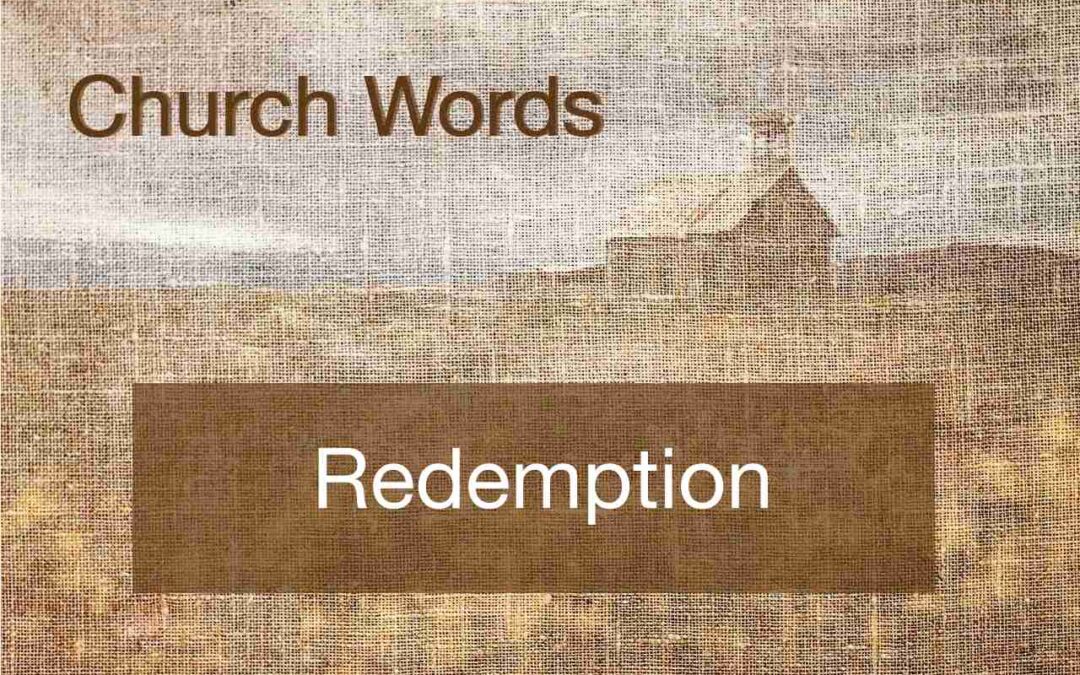Redemption and ransom are synonyms. The words are typically used to describe paying a price to release someone from slavery, bondage or captivity. It is the currency of atonement. In the New Testament the word redemption is used metaphorically to represent God’s gracious deliverance from the bondage of sin by an act of divine power reflecting both his justice and love. Redemption is the means by which humankind is saved from death row, specifically by payment of a ransom. It is a metaphor for what Jesus did on the cross. He “did not come to be served, but to serve, and to give his life as a ransom for many” (Mathew 20:28 | NIV). He paid a ransom with his life to redeem or release us from Satan’s bondage of sin. Let the redeemed of the LORD tell their story– those he redeemed from the hand of the foe . . .” (Psalm 107:2 | NIV).
The word first appears in the Book of Exodus. Israel had been in bondage in Egypt for 430 years before Moses led them to freedom. It was the final plague that caused Pharaoh to allow them to leave. His heart was hardened until God killed the firstborn male human and animal in every home that did not have sacrificial lamb’s blood on the doorpost. (Exodus 12) God’s people had essentially moved from harsh Egyptian bondage into his loving bondage. As the price for freedom he required them to redeem their firstborn sons with a lamb. (Exodus 13:13) The life of a lamb was exchanged for the life of the firstborn male child. Redemption in Christianity reflects that historical practice. Jesus is the “Lamb who was slain from the creation of the world”(Revelation 13: 8 | NIV). In the Old Testament, it was a father who was required to redeem a firstborn son. An animal sacrifice was the quid pro quo; one life for another. The gospel message is a reminder that people must be redeemed from bondage. What is different is the one paying the ransom changed when Jesus took on human form.
There is no money or animal involved in the New Testament redemption transaction. Yet it still involves freeing people from slavery. God, the father, is paying the price to free sinners from bondage and he uses his firstborn son to do it. For there is one God and one mediator between God and mankind, the man Christ Jesus, who gave himself as a ransom for all people” (1 Timothy 2:5-6 | NIV). Like those freed from Egypt, sinners who have received God’s emancipation become his slaves. “But now that you have been set free from sin and have become slaves of God, the benefit you reap leads to holiness, and the result is eternal life” (Romans 6:22 | NIV) The only way to really comprehend redemption is through the metaphor of slavey. We are born into sin slavery and the only way for us to be free is for a ransom to be paid. “Very truly I tell you, everyone who sins is a slave to sin” (John 8:34 | NIV). When we place our absolute trust in Jesus for our salvation, we are set free, yet we remain in slavery. “You have been set free from sin and have become slaves to righteousness” (Romans 6:18 | NIV). And it is that righteousness that reconciles us to a righteous God and guarantees the reward of the righteous. Once free, we do well to heed the apostle Paul’s warning, “It is for freedom that Christ has set us free. Stand firm, then, and do not let yourselves be burdened again by a yoke of slavery” (Galatians 5:1 | NIV).
